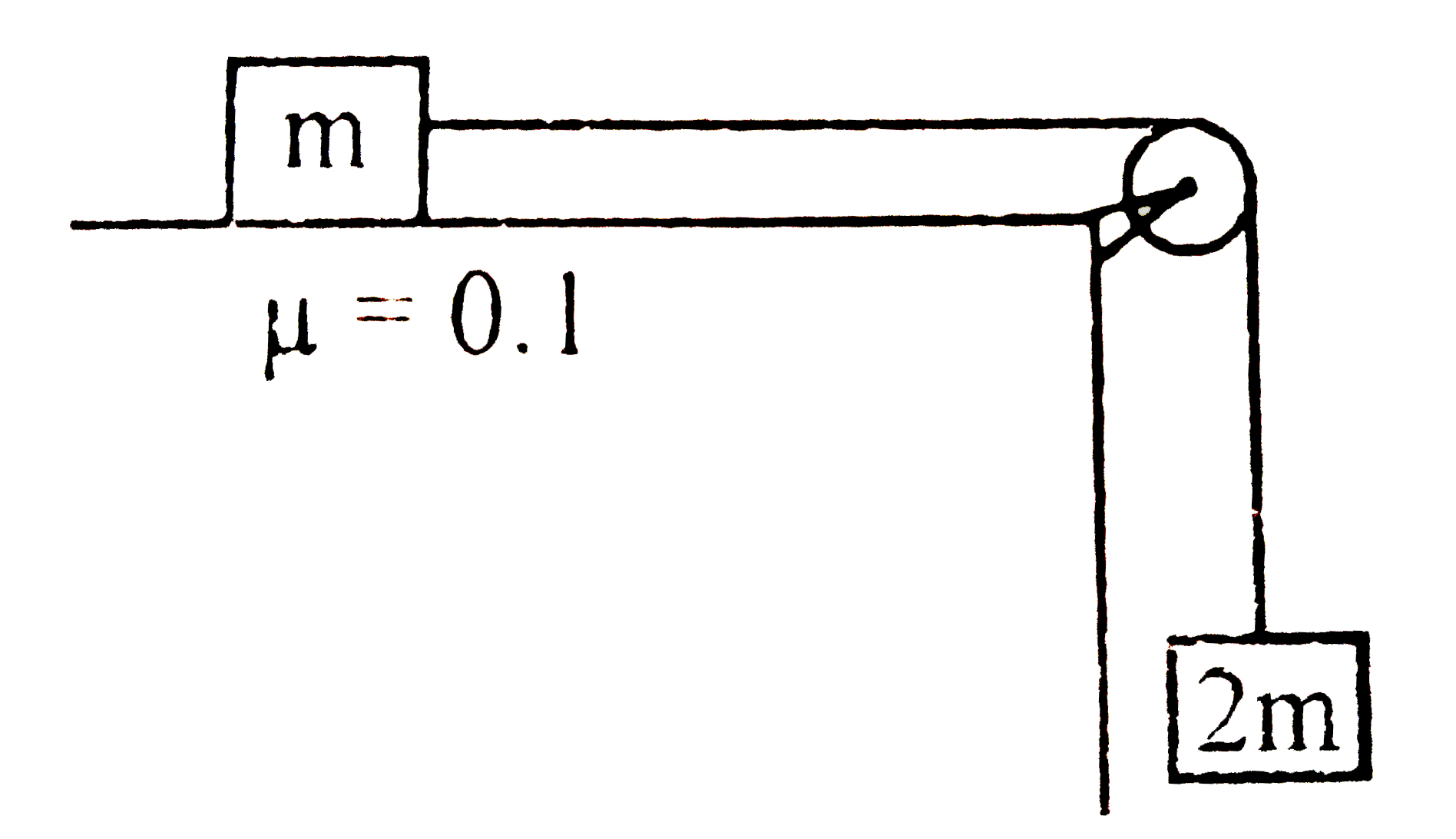In each of the four situations of column-I , a stretched string or an organ pipe is given along with the required data. In case of strings the tension in string is T=102.4 N and the mass per unit length of string is 1g/m. Speed of sound in air is 320 m/s. Neglect end corrections.The frequencies of resonance are given in column-II.Match each situation in column-I with the possible resonance frequencies given in Column-II.
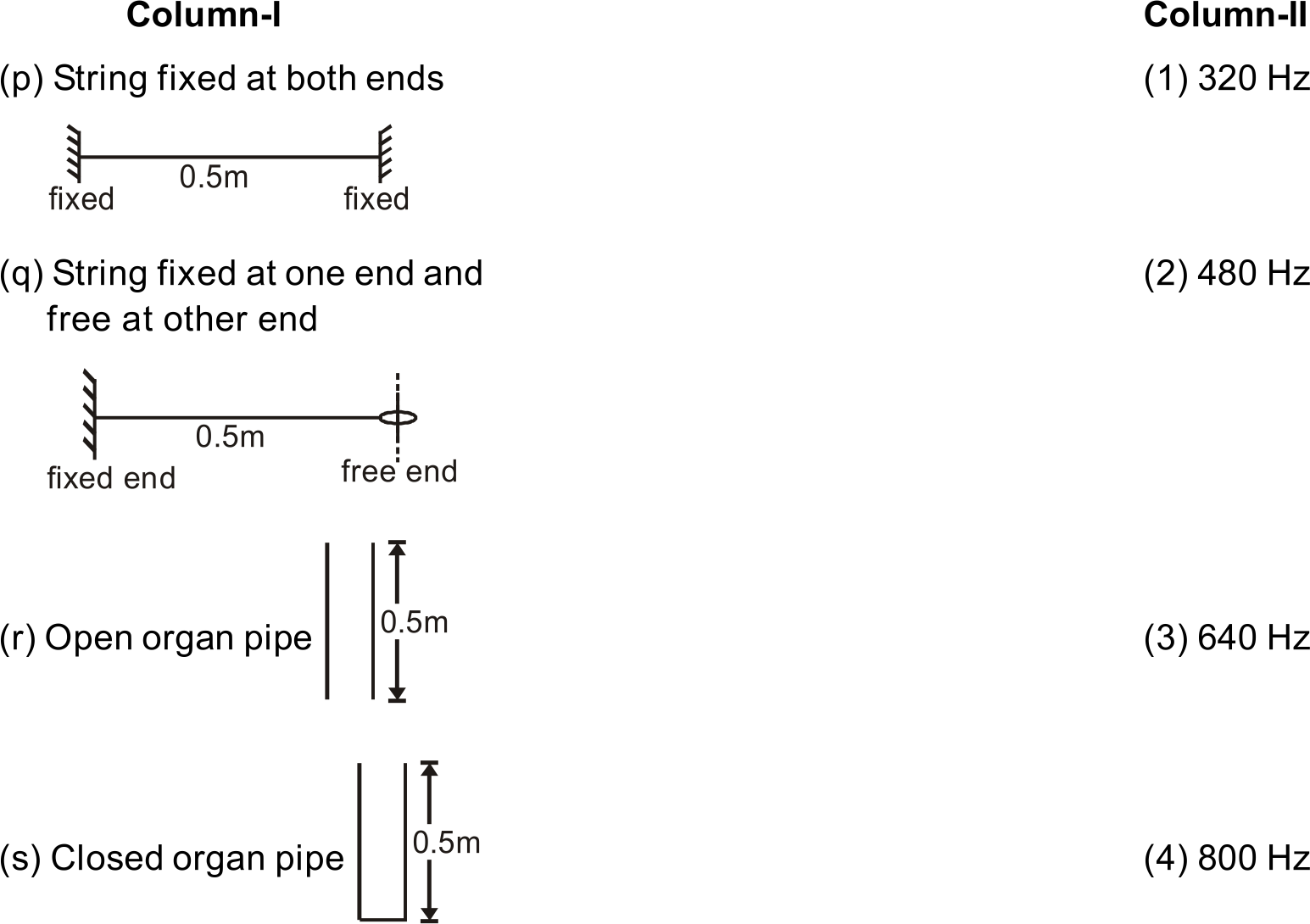
pqrs(A)1324
pqrs(B)1432
pqrs(C)3241
pqrs(D)2413
(A) The fundamental frequency in the string.
f0=√T/μ2l=√102.41×10−3×12×0.5Hz=320Hz.
Other possible resonance frequencies are fAandf0=320Hz,640Hz,960Hz
(B)The fundamental frequency in the string.
f0=√T/μ4l=3204×0.5=160Hz.
Other possible resonance frequencies are
fB=160 Hz, 480 Hz, 800 Hz.
(C )The fundamental frequency in both ends open organ pipe is
f0=v2l=3202×0.5=320Hz
Other possible resonance frequencies are
fc=320Hz,640Hz,960Hz
(D)The fundamental frequency in one end open organ pipe is
f0=v4l=3204×0.5=160Hz
Other possible resonance frequencies are fD=160Hz,480Hz,800Hz
Topper's Solved these Questions
Similar Questions
Knowledge Check
Tension in the strings is 100 N mass per unit length of strings is 0.01 kg/m, velocity of sound in air is 320 m/s.
Column I : gives situation.
Column II : gives frequency of resonance.
Column III: gives wavelength for corresponding resonating frequency.
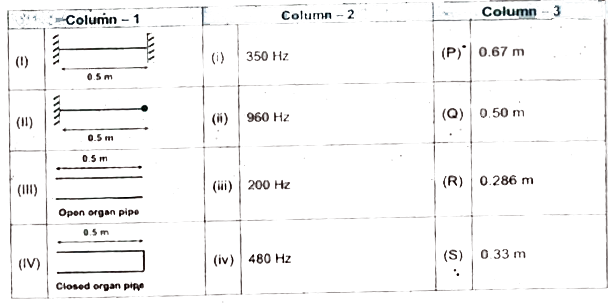
Pick correct combination.A(III) (i) (S)B(III) (ii) (S)C(III) (ii) (P)D(III) (iv) (Q)Velocity of secnod in air is 320 m/s. Neglecting end correctionss, the air column in the pipe can resonate for sound of frequency
A80 HzB240 HzC320 HzD400 HzTension in the strings is 100 N mass per unit length of strings is 0.01 kg/m, velocity of sound in air is 320 m/s.
Column I : gives situation.
Column II : gives frequency of resonance.
Column III: gives wavelength for corresponding resonating frequency.
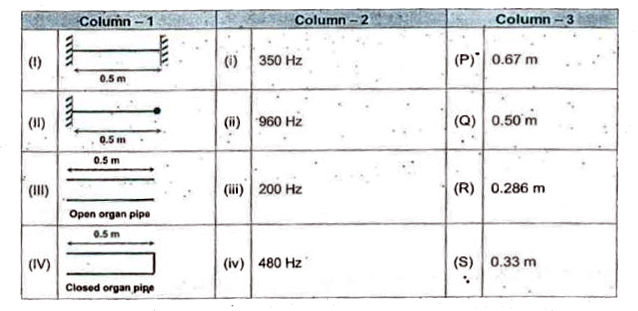
Choose the correct option corresponding to maximum wavelength.A(I) (iii) (P)B(III) (iii) (P)C(IV) (iii) (P)D(IV) (iv) (P)
The frequency of vibration of a string depends of on, (i) tension in the string (ii) mass per unit length of string, (iii) vibrating length of the string. Establish dimensionally the relation for frequency.
View SolutionIn each situation of column-I a process A rightarrow B rightarrow C is given for an ideal gas. Match each situation of column-I with correct result in column II
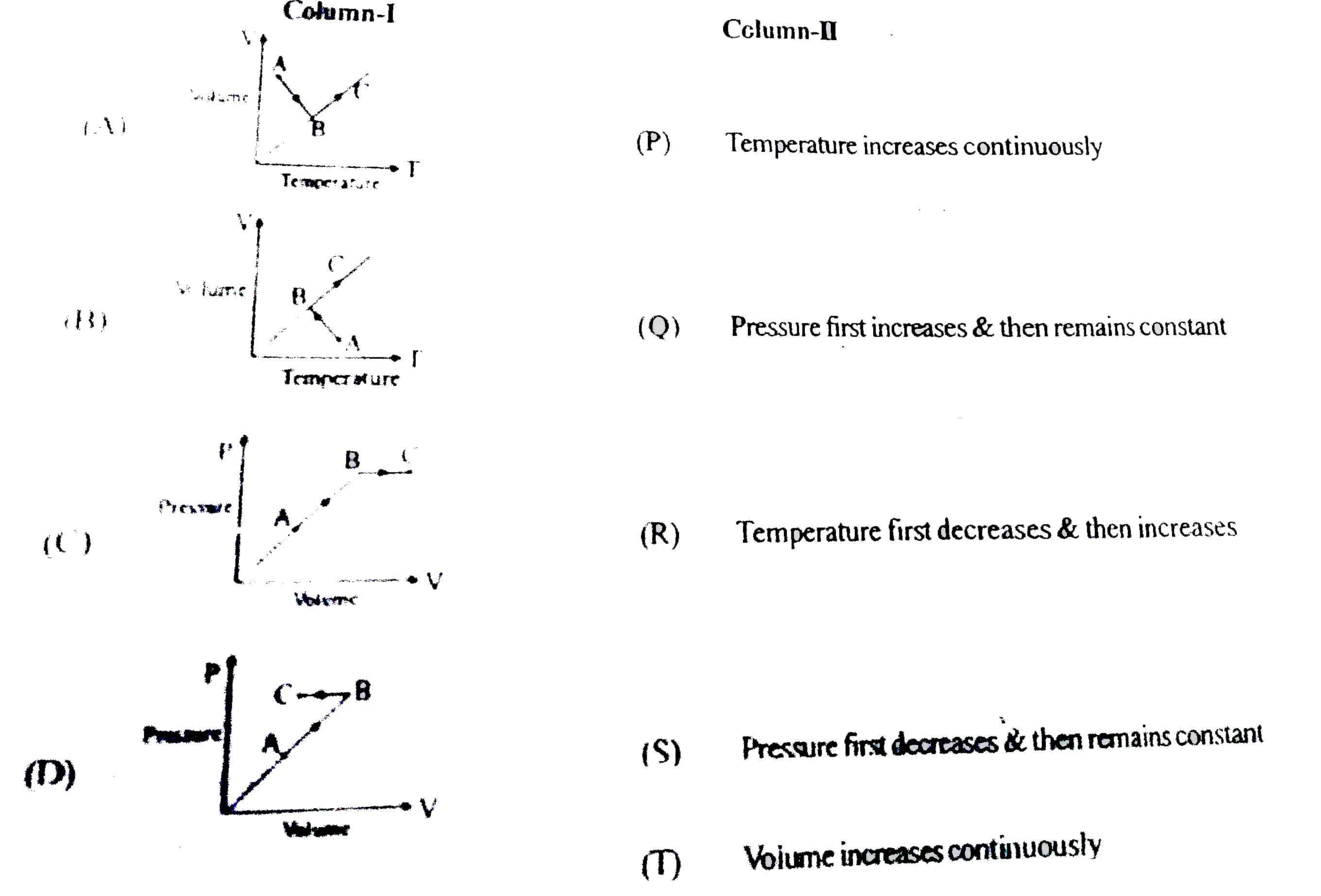
View SolutionWhich of the following is not the law of a stretched string ? ( n , l , T and m are frequency of vibration , length of vibrating string , tension in string and linear mass density , respectively .)
View SolutionA narrow pipe of length 2m is closed at one end. The velocity of sound in air is 320 m/s. Neglecting end corrections , the air column in the pipe will resonate for sound of frequencies :
View SolutionA string of 7 m length has a mass of 0.035 kg. If tension in the string is 60.5 N, then speed of a wave on the string is :
View Solution


